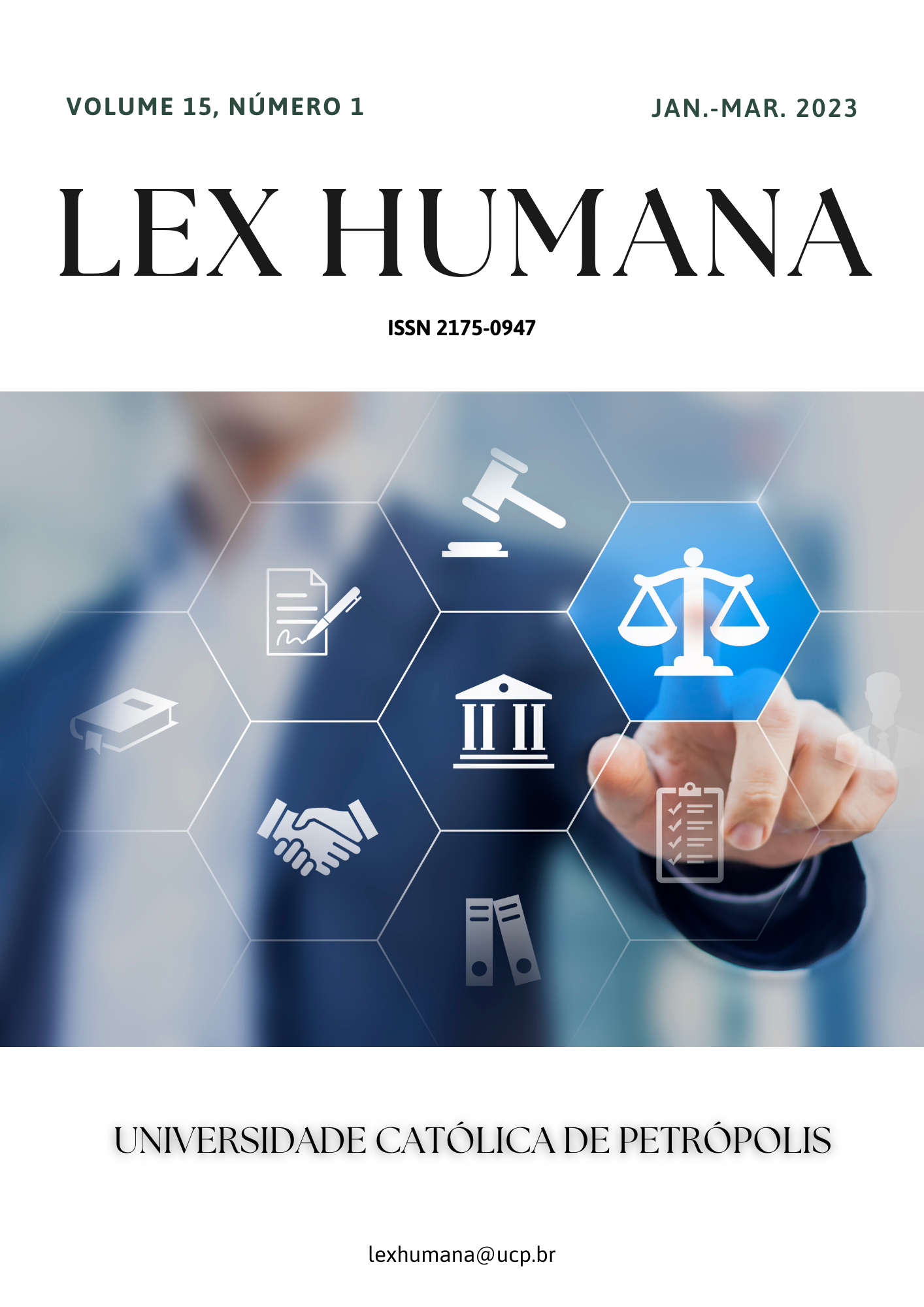Abstract
Nowadays, apart from the existence of the institution of marriage in the traditional sense, the world is witnessing the spread of the model of men and women, as well as same-sex persons, living together as a family without official state registration of the fact of creating such a family. The issue of de facto marriage is becoming increasingly widespread and socially important in society. Every year, fewer people want to register their family relationships. At the same time, the legislator is trying to develop, improve and implement legal mechanisms to protect the interests of people in such relationships. In the course of the study, systemic-structural, comparative, logical, and linguistic methods, analysis, synthesis, induction, deduction, abstraction, and idealization were applied to study and process materials in the field of regulatory guidance of de facto marriage. Moreover, a questionnaire survey served to clarify certain issues in this area in practice. In the course of the study, the most important trends in the scientific literature on the issue of actual marital relations have been outlined. Based on the results of a questionnaire survey, the author elucidates the point of view of practicing lawyers and scholars who study marital relations on certain practical aspects of this issue.
References
Banerjee, D. & Rao, S.T.S. (2022). The Dark Shadow of Marital Rape: Need to Change the Narrative. Journal of Psychosexual Health, 4, 1. https://journals.sagepub.com/doi/10.1177/26318318221083709. https://doi.org/10.1177/26318318221083709.
Cheng, G. & Yan, Y. (2021). Sociodemographic, health-related, and social predictors of subjective well-being among Chinese oldest-old: a national community-based cohort study. BMC Geriatrics, 21, 124. https://bmcgeriatr.biomedcentral.com/articles/10.1186/s12877-021-02071-7. https://doi.org/10.1186/s12877-021-02071-7
DeRose, L.F., Johnson, B.R., Wang, W. & Salazar-Arango, A. (2021). Couple religiosity, male headship, intimate partner violence, and infidelity. Review of Religious Research, 63, 607–627. https://link.springer.com/article/10.1007/s13644-021-00461-2. https://doi.org/10.1007/s13644-021-00461-2
Dew, J.P., Trujillo, S. & Saxey, M. (2022). Predicting marital financial deception in a national sample: a person-centered approach. Family Relations 71, 1497–1514. https://onlinelibrary.wiley.com/doi/10.1111/fare.12654/ https://doi.org/10.1111/fare.12654
Dew, J.P., Saxey, M.T. & Mettmann, A. (2022). Money lies and extramarital ties: Predicting separate and joint occurrences of financial deception and extramarital infidelity. Frontiers in Psychology, 13. https://www.frontiersin.org/articles/10.3389/fpsyg.2022.1038169/full. https://doi.org/10.3389/fpsyg.2022.1038169
Isma, M.N.P. & Turnip, S.S. (2019). Personality traits and marital satisfaction in predicting couples’ attitudes toward infidelity. Journal of Relationships Research, 10, 1–5. https://www.cambridge.org/core/journals/journal-of-relationships-research/article/abs/personality-traits-and-marital-satisfaction-in-predicting-couples-attitudes-toward-infidelity/3BF1D60BCA503CA5A3C55A32FFA7DD2C/ https://doi.org/10.1017/jrr.2019.10
Jeanfreau, M.M., Holdon, C. & Brazeal, M. (2020). Our money, my secrets: why married individuals commit financial infidelity. Contemporary Family Therapy, 42, 46–54. https://link.springer.com/article/10.1007/s10591-019-09516-7. https://doi.org/10.1007/s10591-019-09516-7
Jeanfreau, M.M., Noguchi, K., Mong, M.M. & Stadthagen, H. (2018). Financial infidelity in couple relationships. Journal of Financial Therapy, 9, 1–20. https://newprairiepress.org/jft/vol9/iss1/2/. https://doi.org/10.4148/1944-9771.1159
Lin, L., Hang G., Duan, L., He, L., Wu, C., Lin, Z. & Sun, J. (2022). Research on the relationship between marital commitment, sacrifice behavior, and marital quality of military couples. Frontiers in Psychology, 13, 964167. https://www.ncbi.nlm.nih.gov/pmc/articles/PMC9577325/ https://doi.org/10.3389/fpsyg.2022.964167.
Namira, M., Isma, P. & Turnip, S.S. (2019). Personality Traits and Marital Satisfaction in Predicting Couples’ Attitudes Toward Infidelity.
Journal of Relationships, Research, 10, 2019. https://www.cambridge.org/core/journals/journal-of-relationships-research/article/abs/personality-traits-and-marital-satisfaction-in-predicting-couples-attitudes-toward-infidelity/3BF1D60BCA503CA5A3C55A32FFA7DD2C. https://doi.org/10.1017/jrr.2019.10
Nutz, T., Nelles, A. & Lersch, P.M. (2022). Who Opts Out? The Customisation of Marriage in the German Matrimonial Property Regime. European Journal of Population, 38, 353–375. https://link.springer.com/article/10.1007/s10680-022-09613-8
Paez, D., Delfino, G., Vargas-Salfate, S., Liu, J. H., De Zuniga, H. G. & Khan, S., et al. (2020). A longitudinal study of the effects of internet use on subjective well-being. Media Psychology. 23, 676–710. https://www.tandfonline.com/doi/abs/10.1080/15213269.2019.1624177?journalCode=hmep20. https://doi.org/10.1080/15213269.2019.1624177
Pan, H. & Liu, Q. (2021). Difference of depression between widowed and non-widowed older people in China: a network analysis approach. Journal of Affective Disorders, 280, 68–76. https://linkinghub.elsevier.com/retrieve/pii/S0165032720329888. https://doi.org/10.1016/j.jad.2020.11.058
Park, S.H. & Choi, Y.H. (2020). An exploratory case study on the social isolation of middle-aged males with a high risk of lonely death: focused on emergency welfare support recipients. Critical Sociology, 68, 45–78. https://www.dbpia.co.kr/journal/articleDetail?nodeId=NODE09807378&language=ko_KR&hasTopBanner=true. https://doi.org/10.47042/ACSW.2020.08.68.45
Perelli-Harris, B., Hoherz, S., Lappegard, T. & Evans, A. (2019). Mind the “happiness” gap: the relationship between cohabitation, marriage, and subjective well-being in the United Kingdom, Australia, Germany, and Norway. Demography, 56, 1219–1246. https://read.dukeupress.edu/demography/article/56/4/1219/168031/Mind-the-Happiness-Gap-The-Relationship-Between. https://doi.org/10.1007/s13524-019-00792-4
Rose, A.H., Anderson, S.R., Miller, R.B., Marks, L.D., Hatch, T.G. & Card, N.A. (2021). A dyadic exploration of marital satisfaction as a mediator between religiosity and depressive symptoms.
Marriage & Family Review, 57, 243–266. https://www.tandfonline.com/doi/full/10.1080/01494929.2020.1842842. https://doi.org/10.1080/01494929.2020.1842842
Saxey, M.T., LeBaron-Black, A.B., Dew, J.P. & Curran, M.A. (2022). Less than fully honest: financial deception in emerging adult romantic relationships. Emerging Adulthood, 10, 1529–1542. https://journals.sagepub.com/doi/pdf/10.1177/21676968221089190. https://doi.org/10.1177/2167696822108919
Van Tilburg, T.G. & Suanet, B. (2019). Unmarried older people: are they socially better off today? The Journals of Gerontology, 74, 1463–1473. https://academic.oup.com/psychsocgerontology/article/74/8/1463/5127115?login=false. https://doi.org/10.1093/geronb/gby120.
Ye, M.Z., DeMaris, A. & Longmore, M. A. (2018). Role of marital quality in explaining depressive symptoms after marital termination among older adults. Marriage & Family Review, 54, 34–49. https://doi.org/10.1080/01494929.2017.1284703 https://www.tandfonline.com/doi/abs/10.1080/01494929.2017.1284703?journalCode=wmfr20
Zhao, L., Zhang, K., Gao, Y., Jia, Z. & Han, S. (2022). The relationship between gender, marital status, and depression among Chinese middle-aged and older people: Mediation by subjective well-being and moderation by the degree of digitization. Frontiers in Psychology, 13. https://www.frontiersin.org/articles/10.3389/fpsyg.2022.923597/full. https://doi.org/10.3389/fpsyg.2022.923597

This work is licensed under a Creative Commons Attribution-NonCommercial-NoDerivatives 4.0 International License.
Copyright (c) 2023 Lex Humana (ISSN 2175-0947)
